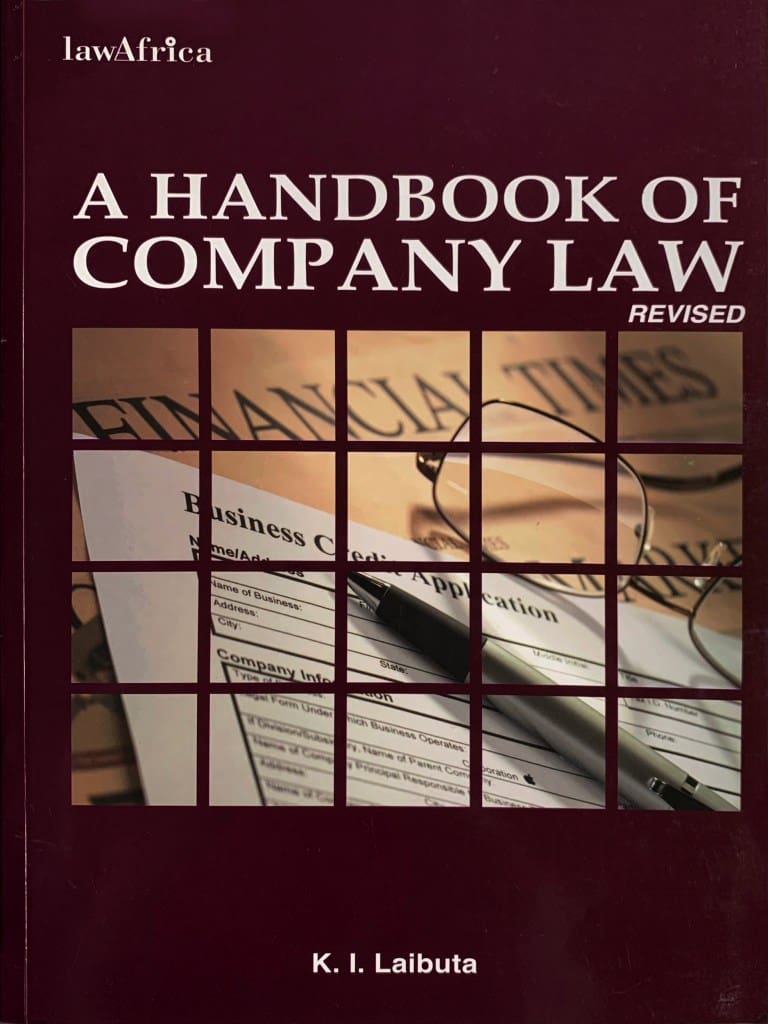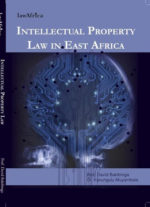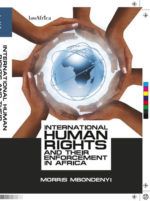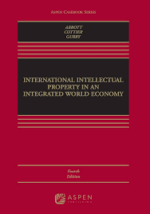This handbook covers the wider subject of business law which includes international elements of commercial law and the law of business associations. It covers a few of the topics which commonly feature in accountancy and business management courses in commercial and company law, and in curricular designed for undergraduate students of law.
Handbook of Company Law
KSh 3,000.00
This handbook covers the wider subject of business law which includes international elements of commercial law and the law of business associations. It covers a few of the topics which commonly feature in accountancy and business management courses in commercial and company law, and in curricular designed for undergraduate students of law.
2 in stock
Related products
-
Intellectual Property Law in East Africa
KSh 3,217.00The past half century in Uganda has witnessed both concern and interest in copyright and neighbouring rights. This is evident in the laws and treaties initiated by both the Uganda Government and the international community, aimed at enabling copyright holders to realize the benefi ts of their intellectual works.
-
Child Rights and the Law in East Africa
KSh 2,200.00The book seeks to streamline the rights and protection of children in the three common law East African countries through law both now and in the future. The book also serves as a resource material in the area of child rights and the law, not only in East Africa, but also across Sub-Saharan Africa. It further seeks to stimulate debate on effective domestication and implementation of international child rights standards in East Africa.
-
Accounting for Lawyers
KSh 1,200.00This book recognizes the fear faced by many law students and to a great extent the practicing lawyer concerning accounting and seeks to provide a basic and simplifi ed understanding to accounting principles for those who have no previous accounting background while at the same time introducing some advanced topics for students with previous exposure and thus a deeper scope of accounting principles. The book also sought to incorporate key accounting principles and relevant changes and developments in the Kenyan industry. A comprehensive glossary of terms has been provided to assist learners in grasping key meanings and explanations
-
CORPORATE SECRETARIAL PRACTICE IN KENYA
KSh 2,600.00Company and Secretarial Practice in Kenya Today is a practical guide to the core functions and responsibilities of a Company Secretary and, therefore, the secretarial function in the present day Kenya. This handbook covers company secretarial duties as laid down by statute, common law and good practice.
-
Employment Law Guide for Employers
KSh 1,665.00The Industrial Court does in its endeavour to interpret the various sections of labour statutes. However, majority of these guidelines have not been made accessible to employers in a manner that is easily and properly understood and appreciated. This is because, even though there is an attempt to avail the decisions of the Industrial Court to the general public, the ratios and the guidelines thereof have not been analyzed in a short, concise and easier manner. This book seeks to address this gap by focusing on the realist perspective.
-
Family Law in Kenya: Marriage, Divorce and Children
KSh 2,600.00Family Law in Kenya in so far as it relates to Marriage, Divorce and Children – the focus of this book has been in an unsatisfactory state and calling for reform for a number of decades. Attempts at legislative reform often floundered as successive male-dominated Parliaments rejected them. They finally became a reality when a new constitutional order was promulgated under the Constitution of Kenya, 2010. The new era made possible the enactment of a new statutory framework for marriage, with its antecedents and consequences, as well as matrimonial property with its ownership and distribution.
-
International Human Rights and their Enforcement in Africa-MORRIS MBONDENYI
KSh 2,400.00The main objective and purpose of this book therefore is to underscore the challenges besetting the effective enforcement of international human rights law in Africa and the prospects and promises of an effective regional human rights system. The book, a revised and updated version of my earlier book entitled The African System on Human and Peoples’ Rights: Its Promises, Prospects and Pitfalls, captures succinctly the recent developments of the system, since the publication of its predecessor. This is done with the understanding that the African human rights system is gradually progressing, despite the fact that it is not only the least developed but also the least effective as compared with its American and European counterparts.
-
International Intellectual Property in an Integrated World Economy (Aspen Casebook)
KSh 60,000.00International Intellectual Property in an Integrated World Economy, Fourth Edition by Frederick M. Abbott, Thomas Cottier, and Francis Gurry, provides a comprehensive treatment of the international intellectual property system across the spectrum of intellectual property rights and interests. It introduces the institutional architecture at the multilateral, regional/plurilateral, bilateral and national levels. For each form of IP, it addresses the technical legal rules and illustrative jurisprudence, as well as economic and social welfare implications. Each of the authors has played a role in the development and implementation of the international rules, and they bring their experience to bear in introducing students to the field.
New to the Fourth Edition:
- The latest developments in bilateral and regional agreements regulating intellectual property, including NAFTA 2.0 (USMCA), CPTPP, and CETA
- Important new judicial decisions, including the U.S. Supreme Court decision adopting international exhaustion of patents and CJEU decisions addressing trademarks, geographical indications, and copyright
- Developments in IP and human rights; IP and competition law; and IP and health
- The WTO panel report in the Australia-Tobacco case
Professors and students will benefit from:
- An approach to the international IP system that situates the rules within the broader context of international law and the public policy objectives that governments, industry, and interest groups are seeking to achieve
- Case law from international dispute settlement bodies, as well as from national and regional courts
- Discussion of patent, trademark, geographical indication, copyright, design, trade secret, and data protection; as well as plant variety protection, protection of genetic resources and traditional knowledge, and the role of open source
- An explanation of the new European Union Unitary Patent system
- Exploration of the increasingly important role of emerging market IP systems
- Materials to help students understand the disputes between the United States and China involving IP, investment, and transfer of technology
- Inclusion of important jurisprudential developments










Be the first to review “Handbook of Company Law”